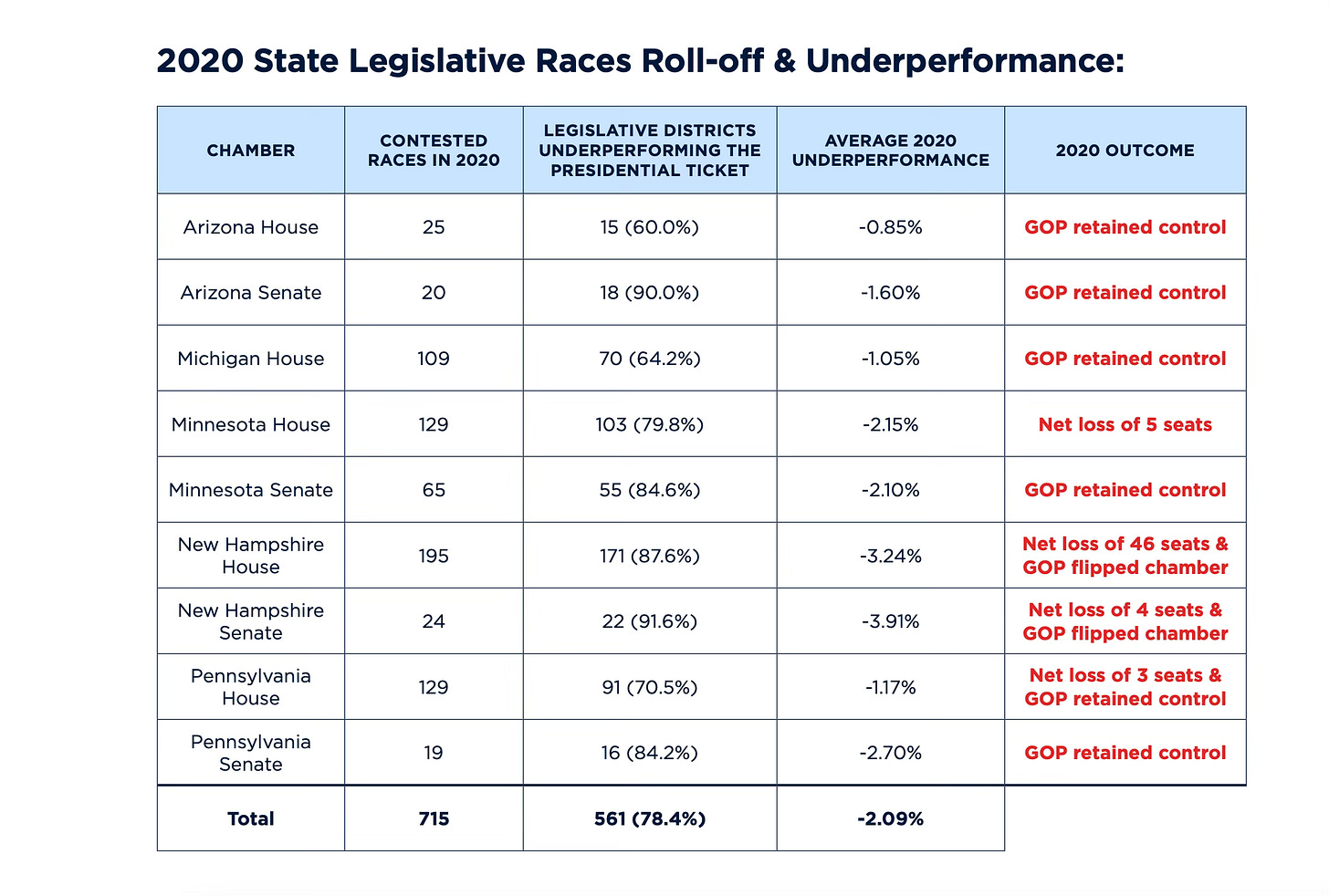Memo Shows a Down-Ballot Warning for Dems
Even if Kamala wins, Democrats could have a problem with state legislature majorities.
The Democratic Legislative Campaign Committee came out with a memo late last week containing an ominous warning.
Even if Vice President Kamala Harris wins the presidential election, Democrats might fall short of a majority in a number of key state legislatures.
Tasked with building out the Democratic Party at the state-level, the DLCC is sounding the alarm around a niche industry term known as “ballot roll-off.”
Ballot roll-off is when voters only vote for their preferences at the top of the ticket and don’t bother filling out the rest of the bubbles further down for local races.
Compared to Republicans, Democrats struggle with this phenomenon slightly more. Also known as “voter roll-off,” it affects more than 80 percent of legislative races around the country from 2012 to 2022, according to the Sister Project, a group also aimed at boosting Democratic majorities in state legislatures.
Some voters have told researchers they don’t fill out the bottom of the ballot because they don’t feel informed enough about state and local races, while others report rushing through their ballots and not wanting to take the time.
The DLCC says in the memo that 2024 is looking “eerily similar” to 2020 in one respect: “when Democrats narrowly won the White House and took full control of Congress, yet lost more than 100 Democratic legislative seats and two chamber majorities in the states. We saw a similar pattern in 2016, when Democrats won the popular vote for President and picked up seats in both chambers of Congress, but saw a net loss of more than 50 state legislative seats nationally and saw three legislative chambers flip to Republican control.”
Democrats could claw back at this trend of underperformance by doing just 1 percent better with ballot drop-off, according to the DLCC memo.
The bigger problem for the party, however, is in how much less this issue affects Republican-won seats in state legislatures. While around 80 percent of Democratic Party candidates were negatively affected by ballot drop-off in that Sister District study of 2012 to 2022, just 37 percent of Republicans were.
The DLCC is hoping to close a roughly $20 million advertising gap with the GOP in the closing weeks of the election, but just $200,000 more in door knocking programs could help reduce ballot drop-off, according to the same memo.
Thanks for indulging me on this nerd-out edition of the newsletter, and keep an eye on the state-level returns on election night.
Some of them will take longer to call, but they’re worth the extra attention.





